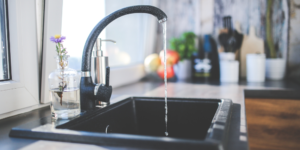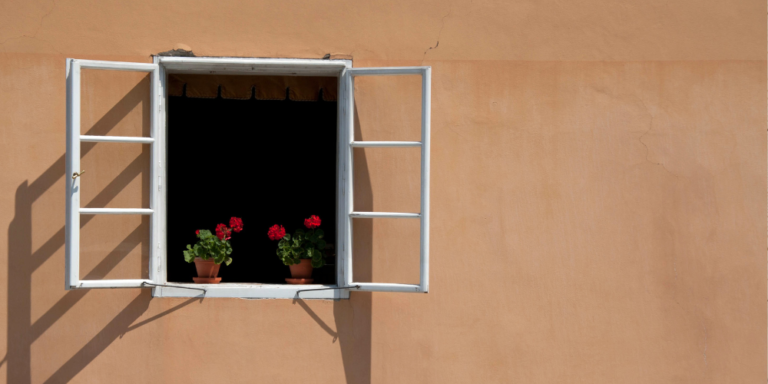
Hard water staining is a common issue for homeowners in Brisbane, caused by the high mineral content in the water. Over time, these minerals—particularly calcium and magnesium—can build up on windows and glass surfaces, leaving unsightly stains that are difficult to remove with regular cleaning methods. In this blog post, we’ll explore the causes of hard water staining in Brisbane and provide practical solutions to prevent and remove these stains effectively. Whether you’re dealing with hard water issues at home or are searching for window cleaners near me, understanding how to tackle hard water stains will help keep your windows crystal clear.
1. What CausesHard Water Stains?
Hard water stains are caused by the high levels of dissolved minerals, particularly calcium and magnesium, found in Brisbane’s water supply. These minerals are left behind when water evaporates, creating a cloudy or chalky residue on windows and glass surfaces.
- Common Sources:
- Sprinklers: Water from garden sprinklers hitting windows can leave behind mineral deposits.
- Rainwater: Rain in Brisbane often contains minerals, which can accumulate on windows.
- Home Cleaning: Using regular tap water to clean windows can contribute to hard water staining over time.
2. Effects of Hard Water Stains on Your Windows
While hard water stains are primarily a cosmetic issue, they can become more challenging to remove the longer they are left untreated. Additionally, these stains can damage the glass by etching or creating rough surfaces over time.
- Visibility: Hard water stains reduce visibility, making your windows look cloudy and unkempt.
- Permanent Damage: Over time, untreated hard water stains can lead to etching, which permanently damages the glass, increasing residential window washing costs.
3. Solutions to Hard Water Staining
Fortunately, there are several methods for preventing and removing hard water stains from your windows. Depending on the severity of the stains, different treatments may be required.
DIY Solutions for Minor Stains
For minor hard water stains, you can try these DIY methods:
Vinegar and Water Solution: Mix equal parts vinegar and water in a spray bottle. Spray the solution onto the stained area, let it sit for a few minutes, then scrub with a non-abrasive sponge. This method works well for cleaning windows with mild mineral buildup.
Lemon Juice and Baking Soda: For a more natural option, sprinkle baking soda on the stain, then apply lemon juice. The acidity in the lemon juice helps break down the minerals, while the baking soda provides a gentle scrubbing action.
These DIY methods are great for homeowners looking for eco-friendly cleaning options similar to those used by house cleaners nearby or domestic window cleaners near me.
Professional Treatments for Severe Stains
For more persistent stains, professional cleaning services may be required. Residential window washing companies often use specialized treatments to remove tough hard water stains safely.
- Specialized Products: Professional window cleaners use commercial-grade products specifically designed to break down mineral deposits without damaging the glass.
- Example: In North Lakes, a client was thrilled when we used a specialized treatment to remove persistent hard water stains caused by Brisbane’s high mineral content. Not only did this restore their windows to a spotless finish, but the treatment had a return on investment (ROI) of over 200%.
By hiring professionals who specialize in window washing services, homeowners can effectively remove stains and prevent future damage, avoiding the high house window cleaning costs associated with etched glass replacement.
4. Preventing Hard Water Stains
The best way to deal with hard water stains is to prevent them from forming in the first place. Here are a few tips to keep your windows stain-free:
- Install Water Softeners: Water softeners can reduce the mineral content in your home’s water supply, preventing hard water stains from forming.
- Squeegee After Cleaning: Always use a squeegee to remove excess water from windows after cleaning to prevent mineral buildup.
- Window Treatments: Applying water-repellent coatings to windows can help prevent water from sticking to the surface, reducing the risk of hard water stains.
5. When to Call Professional Window Cleaners
While DIY methods can be effective for mild cases, hard water stains can become difficult to remove over time. If you’re dealing with severe staining, hiring a professional window cleaner is the most efficient and effective solution.
- Window Cleaning Brisbane Services: Professionals offer thorough cleaning services that can restore your windows, leaving them crystal clear. Whether you’re in need of interior window washing or window cleaning Brisbane Northside, professional cleaners can handle even the toughest stains.
- Long-Term Protection: Professional window cleaners also offer treatments that help protect windows from future staining, extending the life of your windows and reducing long-term maintenance costs.
Brisbane’s winter is mild compared to other regions, but it can still bring chilly mornings.…
Window cleaning can be a rewarding task, but using the wrong equipment can turn it…


